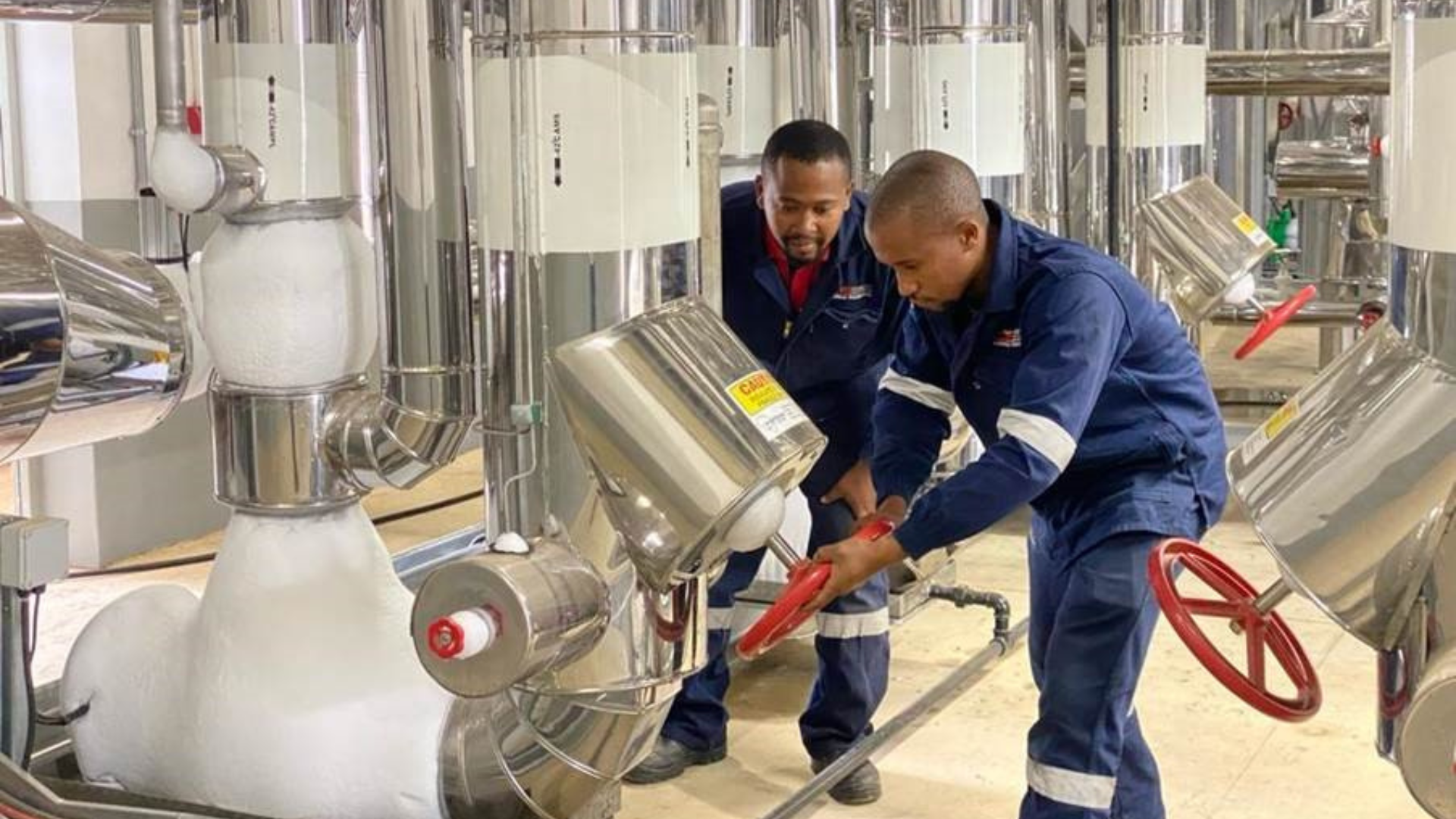Building on the successful partnership at its Kariega, Eastern Cape, Further Processing Facility, Sovereign has again entered into a15-year Cooling-as-a-Service (CaaS) agreement with Energy Partners (EP) to meet growing production demands as efficiently and reliably as possible at its Hartbeespoort (HBP) facility.
Under the terms of the agreement, EP, the prominent energy solutions company and pioneer of CaaS in South Africa, decommissioned two separate, outdated refrigeration plants at the HBP facility, building a separate, central refrigeration plant. In addition to meeting Sovereign’s efficiency and cooling needs, the new plant would also have to adhere to stringent noise level regulations.
Solutions through partnership
Per the CaaS model, EP invested 100% of the capital – approximately R92 million to design and construct the plant and will operate and maintain it over the 15-year agreement period, shifting operational risks such as downtime, efficiency, and service and maintenance away from the poultry producer.
“We’re exceptionally proud of the work we’ve done – and continue to do – for Sovereign,” says EP’s Coenrad Ehlers, Asset Management and Service. “We have replaced outdated infrastructure with a new, state-of-the-art ammonia refrigeration system that ticks so many efficiency and sustainability boxes. The true value, however, will be seen in how Sovereign will now be able to invest the capital and human resources that they’ve freed up into their core business, especially increasing production.”
Sovereign’s Engineering Manager, Stephan Oosthuizen, notes the ease of executing the project despite production challenges: “EP managed to reduce disruptions to the absolute minimum, taking into account that Sovereign produces six days a week, as well as the challenges of transferring loads from the old plant to the new.”
“You cannot manage what you cannot measure”
The new system features a three-stage ammonia refrigeration process with evaporative condensers and water-based oil cooling. The Combined Refrigeration Capacity is 5.47 MWR.
Several elements have been included to boost operational efficiency and sustainability, including a master control system that optimises the entire refrigeration process, compressors and condensers that are equipped with variable speed drives for superior energy management, as well as a heat reclaim mechanism that utilises waste heat to preheat water, reducing boiler fuel use.
Secure remote access to the plant and a 24/7 monitoring service enables a proactive approach to sustaining plant efficiency and allows for a proactive approach to operation and maintenance.
As Oosthuizen asserts, “You can’t manage what you can’t measure, and EP’s monitoring of the plant enables us to quickly identify areas for improvement in our process.”
To combat noise pollution, the plant room has been constructed with double brick walls, rock wool ceilings and specialised acoustic doors. Other noise reduction strategies include strategically placed condensers and noise attenuator filters in the ventilation system.
Designed for future scalability, the system can adapt to increasing cooling demands, and has already achieved a baseline energy savings of 20 percent, thanks to EP’s digital twin technology, which is vital given the site’s electricity constraints.
As Ehlers concludes, “It’s very rewarding that Sovereign have chosen to leverage EP’s CaaS model for a second time, having already seen its value at their Kariega site. The ongoing partnership between our companies shows an unwavering commitment to seeking out and employing innovative, sustainable solutions. We look forward to the next chapter.”




